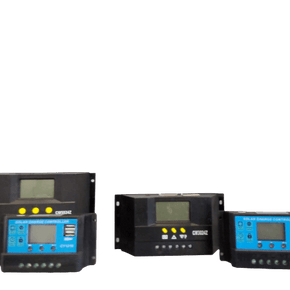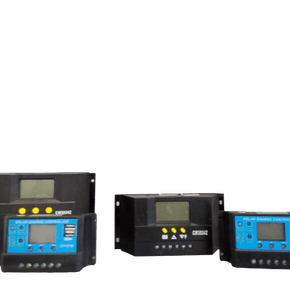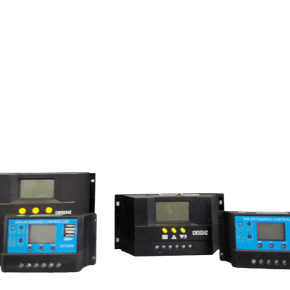- No products in the cart.
Browse Categories
-
Home Appliances
-
Small Appliances
- Audio Visuals
-
Bedlinen & Bathroom
- Decor
- Sewing Machines
- Dress Fabrics, Haberdashery
-
Electronics & Cellphones
- Tech & Gaming
-
Kitchenware & Cleaning
-
Curtaining, Upholstery & Blinds
-
Furniture
- Catering Equipment
-
Fashion
-
Lighting & Hardware
- Solar Solutions
- Luggage & Bags
-
Camping & Outdoor
-
Baby & Toys
- Rugs & Flooring
- Stationery
- Clearance Sales Clearance Sales
- Sort by
- FILTER BY PRICE
-
-
Below $100.00
-
$100.00-199.00
-
$200.00-299.00
-
$300.00-399.00
-
$400.00-499.00
-
Above $500.00
-
- FILTER BY COLOR
-
-
- FILTER BY SIZE
-
-
S
-
M
-
L
-
XL
-
2XL
-
3XL
-
- FILTER BY BRAND
-
-
Adidas
-
Camel
-
Motorola
-
Rolex
-
Samsung Galaxy
-
Seiko
-
Sony
-
Solarwize Solar Charge Controllers 30A 12v/24v PWM
R 280.00Features Load output with low battery voltage disconnect function. Lighting control function, one timer only. Two digit seven segment display for quick and easy setting of the load output functionality,...
Solarwize Solar Charge Controllers 50A 12v/24v PWM
R 645.00Features Load output with low battery voltage disconnect function. Lighting control function, one timer only. Two digit seven segment display for quick and easy setting of the load output functionality,...
Solarwize Solar Charge Controllers 20A 12v/24v PWM
R 195.00Features Load output with low battery voltage disconnect function. Lighting control function, one timer only. Two digit seven segment display for quick and easy setting of the load output functionality,...
Charge Controllers for Sale Online
Shop our range of charge controllers for sale at MHC World. Buy online and receive free delivery over R3500 & within a 30km radius from our store.
Apart from our charge controllers for sale, we also offer solar accessories, inverters, and solar panels.
Charge Controllers, available at MHC World, are crucial components in any solar power setup, helping you protect your batteries and regulate the flow of energy from your solar panels.
Without a charge controller, a solar-powered system can become unreliable, potentially overcharging the battery or reducing its lifespan. Whether you're installing a solar solution at home, on a vehicle, or in an off-grid setup, choosing the best charge controller will dramatically influence your system's performance.
At MHC World, you’ll find a wide selection of affordable and reliable charge controllers to suit different system sizes and budgets. Before you buy, it's important to understand how they work, what features they offer, and how to identify a product that delivers the right balance between price and performance.
What Are Charge Controllers
A charge controller is an electronic device that regulates the voltage and current coming from solar panels to a battery.
When the solar panels generate electricity, the charge controller ensures the voltage and current are within safe limits before delivering it to the battery bank. Without this control, the battery could overheat, become damaged, or lose capacity faster than expected. In some cases, charge controllers also manage the load connection, switching off power when battery levels are too low, helping avoid deep discharge.
While they may look like a small black box with buttons or a screen, charge controllers are the central control unit in most solar systems.
How do Charge Controllers Work
When sunlight hits the panels, they convert solar energy into electricity. This power flows into the controller, which measures the voltage and current to ensure it does not exceed safe levels for the battery.
During charging, the controller adjusts the current flow according to the battery’s charge stage. In the early phase, it allows full current to charge quickly. As the battery nears full capacity, the controller gradually reduces the current to avoid overcharging, which can lead to overheating or swelling.
Most controllers also include protection circuits that disconnect the load once the battery voltage drops below a certain level. This prevents the battery from being completely drained, which shortens its life. Some models even include temperature sensors to adjust the charge rate according to ambient conditions, improving efficiency and safety.
Some modern units use digital monitoring to communicate with inverters and remote systems, allowing better control of the energy network.
Benefits and Disadvantages of Charge Controllers
|
Benefits |
Disadvantages |
|
Prevents battery overcharge and deep discharge, extending battery life |
High-quality models can be expensive |
|
Regulates energy efficiently, improving overall system performance |
May require technical knowledge to set up correctly |
|
Some include digital monitoring, making energy tracking easier |
Not all controllers are compatible with lithium batteries |
|
Protects against reverse current flow at night |
|
|
Temperature and voltage compensation available in advanced models |
Why Charge Controllers Are an Essential Part of Your Equipment
Charge controllers’ role in regulating power flow and protecting the battery bank makes them vital components that keep the system healthy.
Without a charge controller, you risk overcharging your battery, which can cause overheating, swelling, leakage, or even explosion in extreme cases. On the other hand, failing to manage discharge properly can lead to batteries being drained too deeply, reducing their capacity and shortening their lifespan.
Charge controllers improve safety by including automatic cut-off features that prevent electrical faults or short circuits. For off-grid systems, where every watt counts, the efficiency gained from a good charge controller means better use of available sunlight.
In solar-powered homes, caravans, boats, or outdoor workstations, charge controllers make energy independence possible by keeping batteries operating in optimal conditions.
Different Types/Styles of Charge Controllers and Their Features
There are two main types of charge controllers, each with distinct features and performance benefits:
Pulse Width Modulation (PWM) Charge Controllers
PWM controllers are the simpler and more affordable type. They work by gradually reducing the amount of power sent to the battery as it reaches full charge. While effective, they require the solar panel voltage to match the battery voltage for efficient charging.
Features of PWM controllers often include LED indicators, load disconnect, and basic protection circuits. These are ideal for smaller systems or where budget is limited.
Maximum Power Point Tracking (MPPT) Charge Controllers
MPPT controllers are more advanced and allow for higher efficiency, especially in larger systems. They work by adjusting the input voltage from the solar panels to find the optimal power point and then converting the excess voltage into additional current to charge the battery faster.
MPPT units are ideal for systems where panel voltage exceeds battery voltage, such as in 24V or 48V systems. They often include LCD screens, data logging, temperature sensors, and remote connectivity.
In choosing between the two, your system size and power requirements will be the deciding factors. For large off-grid homes, MPPT offers the best efficiency and return on investment. For small cabins or mobile setups, a PWM may provide sufficient control at a lower price.
What is the Lifespan of Charge Controllers and How Can You Extend It
A well-made charge controller typically lasts between 5 and 15 years. The actual lifespan depends on the environment, usage intensity, and care. High temperatures, dust, moisture, or frequent power surges can shorten a controller's life, while proper installation and maintenance help it last longer.
To extend the life of your charge controller:
- Install it in a clean, ventilated, and dry environment to prevent overheating or corrosion.
- Avoid overloading by ensuring the controller is rated correctly for your system's panel wattage and battery bank.
- Use appropriate cabling and connections to minimise resistance and heat.
- Keep the unit dust-free by wiping it regularly and checking vents for blockages.
- Update firmware on digital units when available to ensure continued performance.
How to Choose Charge Controllers
When choosing a charge controller, begin by calculating the total wattage of your solar panels and the voltage of your battery system. This will help determine the correct size of controller, measured in amps. For example, a 600W system on a 12V battery requires a controller that handles at least 50 amps.
Decide whether you need PWM or MPPT based on system size, budget, and performance expectations. If you have higher voltage panels or plan to expand your system later, an MPPT controller may be the best long-term investment.
Evaluate the controller’s features. Look for battery type compatibility (especially if using lithium), display options, remote monitoring capabilities, temperature sensors, and programmable load settings. These features improve flexibility and ease of use.
Check the price, but do not base your choice on cost alone. The most affordable model may not be suitable for your specific system. A slightly more expensive model that includes battery protection, data display, and higher charging efficiency could save you more in the long run.
When you buy a charge controller, ensure it comes with a warranty and clear installation instructions.
Best Brands of Charge Controllers Available on MHC World
At MHC World you can purchase all reputable brands of Charge Controllers, including Solarwize, at a reasonable price.



